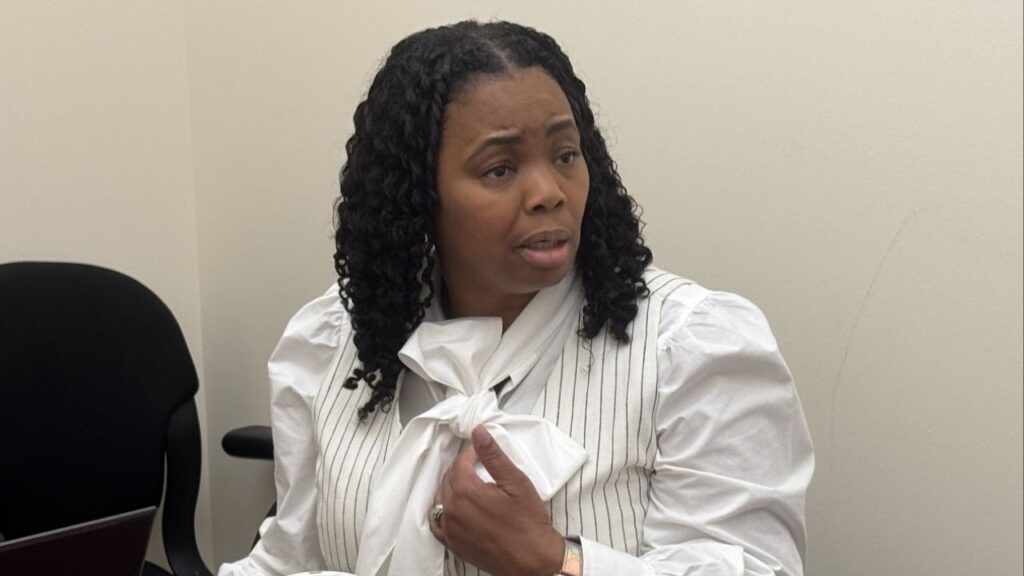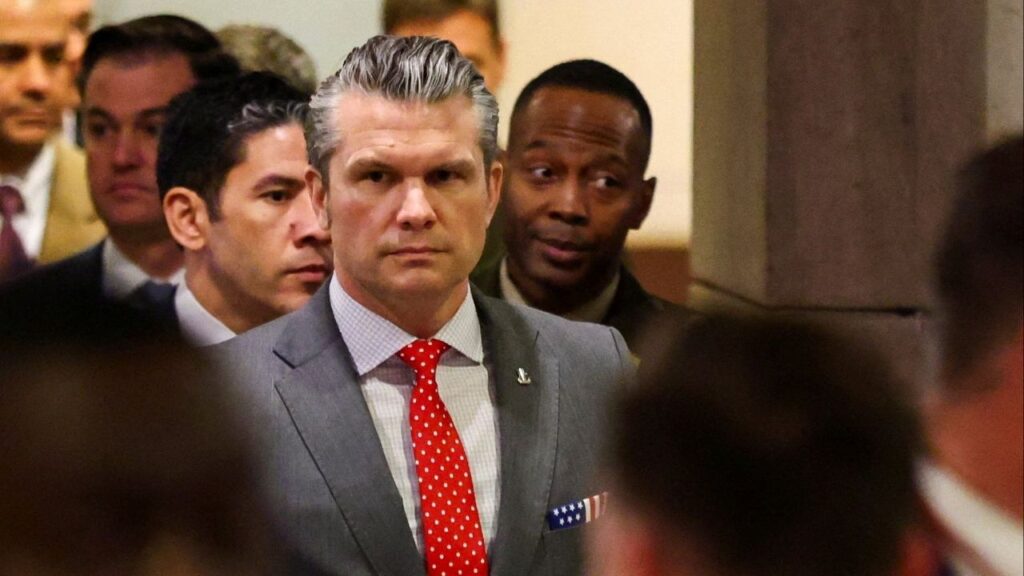Share
WASHINGTON — With exceptional resolve in an extraordinary time, the House on Friday debated a $2.2 trillion package tossing a life preserver to a U.S. economy and health care system left flailing by the coronavirus pandemic, even as one maverick Republican threatened leaders’ plans for swift passage.
Democratic and Republican leaders were working in tandem and hoping to quickly pass the measure by voice vote to accommodate members scattered around the country and reluctant to risk flying back to the Capitol. There were hand sanitizers at the end of each aisle in the chamber, where most lawmakers sat scattered apart from one another.
There was no doubt the House would give overwhelming final congressional approval to the largest economic bailout legislation in U.S. history. For the most part, Democrats who saw a taxpayer giveaway to big business and Republicans who considered it ladened with waste were set to back the measure for the greater good of keeping the economy alive.
But libertarian Rep. Thomas Massie, R-Ky., was threatening to slow action by demanding a roll call vote. That would force many lawmakers to make the journey to Washington to cast a vote on legislation that is certain to pass anyway, and it infuriated President Donald Trump and lawmakers from both parties.
Trump, who is certain to sign the legislation, tweeted that Massie is “a third rate Grandstander” and said he should be drummed out of the GOP. “He is a disaster for America, and for the Great State of Kentucky!” Trump wrote.
Massie, who opposes the massive bill, was in the chamber during the debate, chatting occasionally with others and checking his phone. He did not respond to reporters’ repeated efforts to reach him. Posting on Twitter, he cited a section of the Constitution that requires a majority of lawmakers — some 216 of them — to be present and voting to conduct business.
But Still, There Were Outbursts
The debate was mostly conciliatory, with members of both parties praising the measure as a rescue for a ravaged nation. The lecturns in the chamber’s well were wiped down between many of the speeches.
“While no one will agree with every part of this rescue bill, we face a challenge rarely seen in America’s history. We must act now, or the toll on lives and livelihoods will be far greater,” said Rep. Kevin Brady, R-Texas.
But still, there were outbursts.
Freshman Rep. Haley Stevens, D-Mich., donned pink latex gloves and yelled well beyond her allotted one minute, saying she was speaking “not for personal attention but (to encourage you) to take this disease seriously.” Much of what she said could not be heard above Republican shouts.
Numerous high-ranking Republicans called Massie in an attempt to persuade him to let the voice vote proceed, according to a top House GOP aide. They included House Minority Leader Kevin McCarthy, R-Calif., and Rep. Mark Meadows, R-N.C., whom Trump has chosen as his new chief of staff. The aide spoke on the condition of anonymity to describe private conversations.
Democratic leaders urged lawmakers who are “willing and able” to come to the Capitol to do so. And members of both parties were clearly upset with Massie.
“Heading to Washington to vote on pandemic legislation. Because of one Member of Congress refusing to allow emergency action entire Congress must be called back to vote in House,” Rep. Peter King, R-N.Y., wrote on Twitter. “Risk of infection and risk of legislation being delayed. Disgraceful. Irresponsible.”
South Dakota GOP Rep. Dusty Johnson posted a selfie of himself and three other lawmakers from the upper Midwest traveling to Washington on an otherwise empty plane.

The Legislation Will Give $1,200 Direct Payments to Individuals
Friday’s House session followed an extraordinary 96-0 Senate vote late Wednesday. The bill’s relief can hardly come soon enough.
Federal Reserve Chairman Jerome Powell said Thursday the economy “may well be in recession” already, and the government reported a shocking 3.3 million burst of weekly jobless claims, more than four times the previous record. The U.S. death toll from the virus rose to 1,300.
It is unlikely to be the end of the federal response. House Speaker Nancy Pelosi said issues like more generous food stamp payments, aid to state and local governments and family leave may be revisited in subsequent legislation.
The legislation will give $1,200 direct payments to individuals and make way for a flood of subsidized loans, grants and tax breaks to businesses facing extinction in an economic shutdown caused as Americans self-isolate by the tens of millions. It dwarfs prior Washington efforts to take on economic crises and natural disasters, such as the 2008 Wall Street bailout and President Barack Obama’s first-year economic recovery act.
But key elements are untested, such as grants to small businesses to keep workers on payroll and complex lending programs to larger businesses.
Policymakers worry that bureaucracies like the Small Business Administration may become overwhelmed, and conservatives fear that a new, generous unemployment benefit will dissuade jobless people from returning to the workforce. A new $500 billion subsidized lending program for larger businesses is unproven as well.
The bill finances a response with a price tag that equals half the size of the entire $4 trillion-plus annual federal budget. The $2.2 trillion estimate is the White House’s best guess of the spending it contains.
The legislation would provide one-time direct payments to Americans of $1,200 per adult making up to $75,000 a year and $2,400 to a married couple making up to $150,000, with $500 payments per child.
An Additional $45 Billion Would Fund Additional Relief
Unemployment insurance would be made far more generous, with $600 per week tacked onto regular state jobless payments through the end of July. States and local governments would receive $150 billion in supplemental funding to help them provide basic and emergency services during the crisis.
The legislation also establishes a $454 billion program for guaranteed, subsidized loans to larger industries in hopes of leveraging up to $4.5 trillion in lending to distressed businesses, states, and municipalities. All would be up to the Treasury Department’s discretion, though businesses controlled by Trump or immediate family members and by members of Congress would be ineligible.
Republicans successfully pressed for an employee retention tax credit that’s estimated to provide $50 billion to companies that retain employees on payroll and cover 50% of workers’ paycheck up to $10,000. Companies would also be able to defer payment of the 6.2% Social Security payroll tax. A huge tax break for interest costs and operating losses limited by the 2017 tax overhaul was restored at a $200 billion cost in a boon for the real estate sector.
An additional $45 billion would fund additional relief through the Federal Emergency Management Agency for local response efforts and community services.
Most people who contract the new coronavirus have mild or moderate symptoms, such as fever and cough that clear up in two to three weeks. For some, especially older adults and people with existing health problems, it can cause more severe illness, including pneumonia, or death.
Categories

Trump, Rubio Offer Conflicting Reasons for US Entry Into Iran War
















